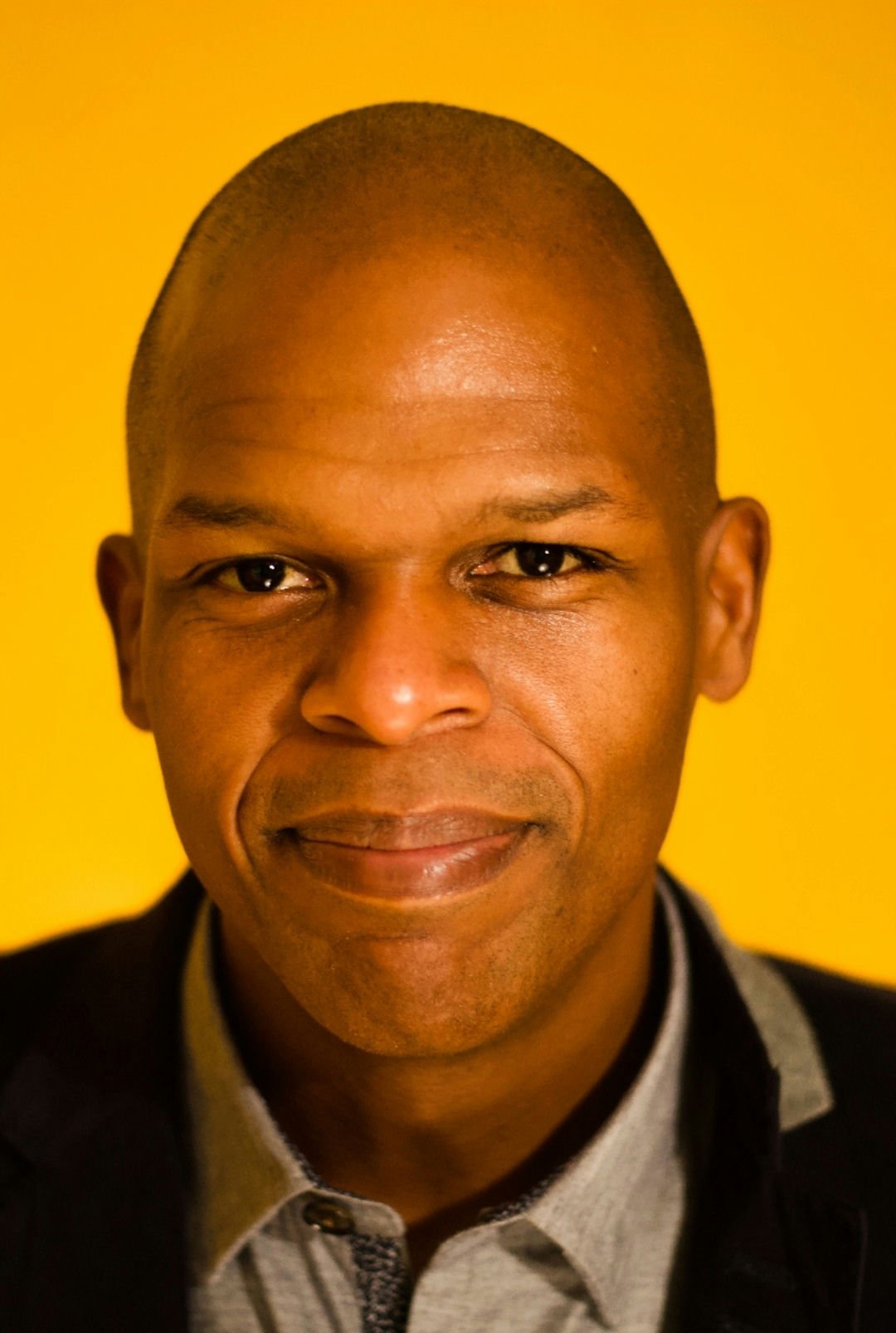Maurice Carlos Ruffin
you can run
Near the edge of the French Market canopy, a cannon blasted. The wave of humanity in front of Clarke burbled out of the gate. Eventually, a path cleared, and he moved at a brisk pace, too brisk a pace. He couldn’t run the whole thing that fast; he wouldn’t last more than a couple of miles, but he didn’t slow. The cold air emboldened him.
A girl in thigh socks streaked past; a boy broke free of the crowd to redo his laces. Clarke regarded a demolished skyscraper. It was once a bank. But now it was a seven-story tall pile of steel and pounce. At mile eight, a twinge ripped through his body. But he didn’t stop, and the pain subsided. Around the thirteen-mile marker, he saw Tammy Pham’s back. She wore a pink shirt with a violin decal across the back. Clarke sped up. But she dashed forward, and soon he lost sight of her. Between miles eighteen and nineteen, his wrist monitor said that he’d been loping along for over twenty hours and that his heart rate was below zero. He flung the monitor into a garden fountain. Wind chimes sang. The sun had not changed positions in the sky, and his movement was effortless.
Many runners bobbed ahead of him, but many more faded behind. With two miles to go, Clarke ambled through the stone arch at City Park. He smelled algae blooms, and butterflies flitted across a murky pond to his right. A miniature train—the same one he often rode as a child—tooted along the perimeter. Smoke frolicked from its yellow smokestack. He had taken Penny on that train once. He wished he had taken her more than once. That time, she wore an orange dress and matching jelly shoes, a lace ribbon dangling from her hair. He imagined how she might look at that moment, a beautiful young woman, circling the park in the caboose, waving at him and shouting, “Hi, Daddy!” And what if his mother, dead for a decade, sat hand in hand with Penny? Wouldn’t he like to join them on the train if he could? How could he have been so foolish? His life was so full of blessings when he was younger, but it all trickled away with time. If only he could go back to his first days with Vonetia and give her the kind of partnership she deserved.
He rallied on. The city museum loomed before him. Its marble columns meant the journey was nearly complete. On the rear steps of the building, he saw a familiar face, those curves, those cheeks, Vonetia! He stopped and threw his arms up to hug her, but held back. He didn’t want to foul her; he was disgusting with sweat.
“Boy,” she said. “Hug me.” And he did. They backed away from each other.
“Go on now.” She pointed up the lane. Not far away people jumped and clapped as their loved ones passed the finish line
“I’ve run enough,” he lied.
“Go!” Vonetia shoved him.
“But—”
Clarke glanced back at her as he jogged away. The love of his life never seemed so radiant as then. “Forgive me,” he mouthed as their distance grew. The race clock blinked in the distance. He might make his time if he hurried.
photo by Clare Welsh
Maurice Carlos Ruffin’s work has appeared in AGNI, Kenyon Review, Callaloo, Massachusetts Review, LitHub, and Virginia Quarterly Review. He is the winner of the Iowa Review Fiction Award and the William Faulkner Competition for Novel in Progress. Ruffin’s novel We Cast a Shadow will be published by One World Random House in January 2019. He is a member of the Peauxdunque Writers Alliance.

